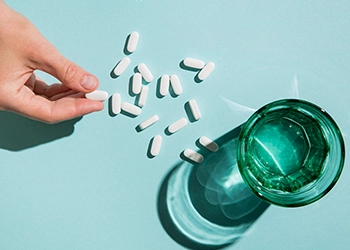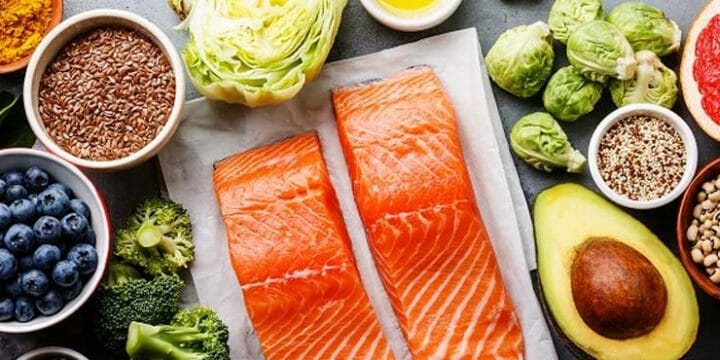In today’s highly competitive society, nootropics have gained a lot of popularity and are often used, even by healthy people, to improve cognitive functions.
On the other hand, a lot of people think the effects of these smart drugs are overhyped or just a result of the placebo effect.
Curious about this myself, I spent hours looking through various clinical trials, studies, and reviews and discussed my notes with our dietician to fully answer whether nootropics actually work.
Let’s begin.
Quick Summary
- Nootropics, both natural and synthetic, are generally effective in enhancing brain function and cognition.
- Their effectiveness varies depending on the type, dosage, and individual factors, but overall they are safe for most people.
- Omega-3 fatty acids, crucial for brain cell membrane composition, highlight the importance of dietary components in cognitive health, as reported in the journal Nutrients.
- In my opinion, nootropics have a notable impact on mental performance, particularly when combined with a balanced diet for overall brain health.
What Are Nootropics?

Nootropics (also called smart drugs, brain boosters, or cognitive enhancers) are substances that improve brain function, promote mental health, and enhance cognition. Having tried both natural and synthetic nootropics, I've observed notable improvements in my cognitive abilities.
Nootropics are generally safe for everyone and can be natural and synthetic.
Natural or organic nootropics are types of plants, plant extracts, and foods, while synthetic or prescription nootropics are lab-made substances (usually made of synthetic compounds) that mimic the structure of natural smart drugs and therefore cause similar effects.
The term itself was coined by the Romanian chemist Corneliu Giurgea in 1972.
During that time, he created the first synthetic smart drug to increase human intelligence - piracetam [1].
Are Nootropics Effective?
Yes, nootropics are effective, but to what degree highly depends on the type, dosage, and some additional factors. In my experience, the effectiveness of nootropics has varied, but overall, they have positively impacted my cognitive functions.
Many nootropic drugs take time to build up in your body before you begin to feel their full effects.
Nootropics might interact with sex hormones in the brain, potentially influencing cognitive abilities and mood regulation.
What Makes Nootropics Effective?

Nootropics are valued for enhancing memory, cognitive function, and overall brain health. I've found that nootropics particularly help in sharpening my memory and focus.
They serve both the healthy and those with cognitive challenges, offering management options for conditions like bipolar disorder, Alzheimer’s, depression, and anxiety, though not as cures [2].
“Nootropics work on improving cognition, memory, alertness, concentration, creativity and attention. They became known as cognitive enhancers, compounds that amplify how the different cognitive functions in the brain work and how we process information.”
- Dr. Amira Guirguis, Senior Pharmacy Lecturer
Related Articles:
Some Commonly Used Ones

Here is a list of some of the most commonly used nootropics as smart drugs and how effective they are.
Among the listed nootropics, I've personally found L-theanine and Modafinil particularly effective for concentration and alertness.
Common Natural Smart Drugs
Here is a list of commonly used natural nootropics:
- L-theanine: This naturally-occurring amino acid found in tea is known for restoring damaged nerve cells, based on study published in PubMed [3].
- Bacopa monnieri: This smart drug is known to improve memory, speed up reaction time, and enhance information processing [4].
- Panax ginseng: This nootropic has a strong anti-inflammatory effect that protects your brain cells from oxidative stress [5].
- Rhodiola rosea: A popular nootropic that helps your body manage stress and fight mental fatigue, according to the BMC Complementary and Alternative Medicine [6].
- Lion’s mane mushroom: This plant may stimulate, grow, heal, and protect nerve cells [7].
- Ginkgo biloba: One of the oldest living species of trees, its leaves are known to increase blood flow to the brain and improve its functioning [8]. It’s also known to sharpen the attention span of Alzheimer’s disease patients, according to the National Library of Medicine [9].
- Choline: This nootropic may help you retain memories and achieve deep restorative sleep [10].
Related Article: What Are the Side Effects of Rhodiola Rosea?
Common Prescription Smart Drugs
Here’s a list of commonly used prescription nootropics:
- Ritalin: This amphetamine derivative is used to treat ADHD [11].
- Modafinil: This drug is commonly used to treat narcolepsy and other sleep disorders, according to the Mayo Clinic [12].
- Adderall: A popular brain booster, it changes your brain chemistry to help you stay focused and control behavioral problems [13].
- Racetam: It’s used to treat cognitive deficits from brain injuries [14].
5 Benefits of Nootropics

Here’s a list of the most common benefits of smart drugs:
- Increases blood flow to the brain: Many nootropics increase blood circulation to the brain and increase its overall activity, according to the research published in PubMed [15].
- Improved memory: One of the most common benefits of nootropics is improved memory [16]
- Manages anxiety: Studies published in PubMed show that certain nootropics can help relieve anxiety [17].
- Improves brain health: Nootropics can help maintain proper brain health and functioning [18].
- Fights age-related brain diseases: Many nootropics may help you fight age-related mental decline [19].
How To Maximize Nootropics With Food?
Enhancing nootropics' effects with the right food is key. Though the brain is only 2% of body weight, it consumes 20% of daily energy, sourced from food.
Proper nutrition improves cognitive functions like attention and memory. However, not all foods are beneficial for the brain; some can even harm cognitive health.
Omega-3 fatty acids, like the fatty acid DHA, are essential components of the lipids that constitute the brain cell membranes, according to the Nutrients [20].
Certain foods may act as natural nootropics, enhancing cognitive functions through their nutritional content. Therefore, consuming foods like seeds and nuts can increase blood flow to the brain and may even stimulate the formation and preservation of new brain cells.
Combining nootropics with a brain-healthy diet has significantly amplified their benefits in my case.
FAQs
What Are Nootropics Used For?
Nootropics are used for improving memory, increasing mental alertness and concentration, and boosting energy levels and wakefulness. These smart drugs can be taken as dietary supplements or prescription drugs, depending on what your physician recommends.
Do Nootropics Clean Brain Fog?
Yes, nootropics can clear brain fog, depending on the cause (exhaustion, chronic illness, or learning disabilities). However, you shouldn’t depend solely on nootropics. To clear brain fog, you should also eat a healthy diet, exercise daily, and take the right supplements.
How To Tell If Nootropics Are Working?
You can tell if nootropics are working by watching out for improvements in mental energy, increased motivation, better focus, and less brain fog. Not all of these signs might happen all at once because a natural nootropic might take a few days to build up.
Are Nootropics Addictive?
Most nootropics, when used as directed and in moderate doses, are not considered addictive. Nootropics are designed to enhance cognitive function and memory without the addictive properties associated with substances like opioids or stimulants.
How Long Do Nootropics Take to Work?
How long nootropics take to work depends on their type and individual factors. Some, like caffeine, can work within minutes, while others, especially those that affect brain health or neurotransmitter levels, may take several weeks to show noticeable effects.
What Are the Best Nootropic Plants?
The best nootropic plants include:
- Ginkgo Biloba: Enhances memory and concentration.
- Panax Ginseng: Improves mental performance and reduces fatigue.
- Bacopa Monnieri: Boosts brain function and memory.
- Rhodiola Rosea: Increases mental processing, reduces fatigue.
- Ashwagandha: Reduces stress and anxiety, improves brain function.
References:
- https://www.ncbi.nlm.nih.gov/pmc/articles/PMC5260335/
- https://www.medicalnewstoday.com/articles/326379
- https://pubmed.ncbi.nlm.nih.gov/30553451/
- https://www.ncbi.nlm.nih.gov/pmc/articles/PMC3153866/
- https://www.ncbi.nlm.nih.gov/pubmed/26236231
- https://www.ncbi.nlm.nih.gov/pmc/articles/PMC3541197/
- https://www.ncbi.nlm.nih.gov/pmc/articles/PMC5987239/
- https://www.ncbi.nlm.nih.gov/pubmed/12905098
- https://www.ncbi.nlm.nih.gov/books/NBK279357/
- https://www.ncbi.nlm.nih.gov/pmc/articles/PMC6531048/
- https://www.rxlist.com/ritalin-drug.htm
- https://www.mayoclinic.org/drugs-supplements/modafinil-oral-route/side-effects/drg-20064870?p=1
- https://www.webmd.com/drugs/2/drug-63163/adderall-oral/details
- https://pubmed.ncbi.nlm.nih.gov/20166767/
- https://pubmed.ncbi.nlm.nih.gov/10978039/
- https://www.ncbi.nlm.nih.gov/pmc/articles/PMC5021479/
- https://pubmed.ncbi.nlm.nih.gov/2896427/
- https://www.sciencedirect.com/topics/neuroscience/nootropic
- https://pubmed.ncbi.nlm.nih.gov/27656235/
- https://www.ncbi.nlm.nih.gov/pmc/articles/PMC7468918/
About The Author
You May Also Like






